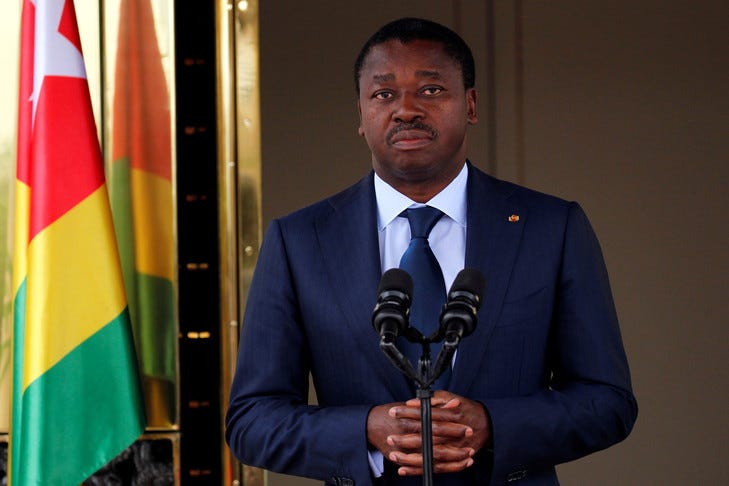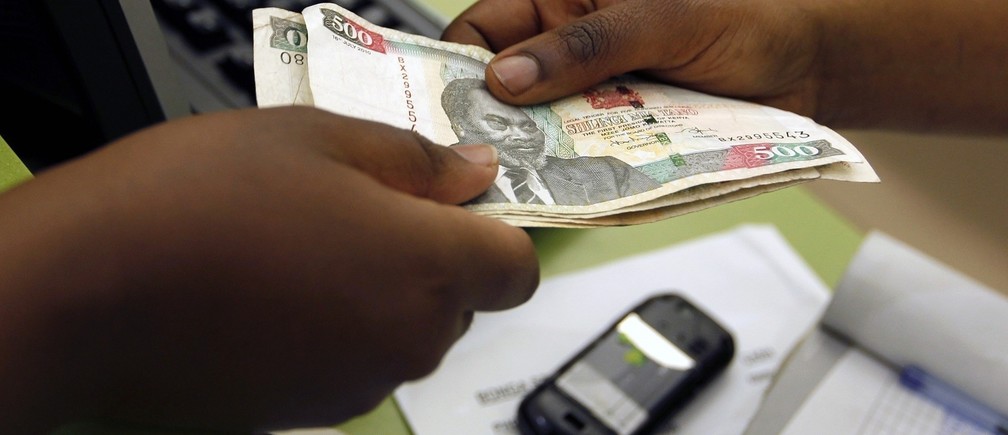Ahead of Togo’s critical elections next month, Rachad Bani Samari of the Media Foundation for West Africa’s Media and Good Governance programme highlights some challenges the country faces and suggests recommendations.
On February 22, 2020, Togo, a former French colony, will be heading to the polls to elect its President out of seven candidates including the long standing 53-year-old incumbent, Faure Gnassingbé, who will be contesting for a fourth term in office.
The upcoming 2020 elections is the first being held since presidential term limits were restored in May 2019. This election brings back to focus a number of issues including: new presidential term limit, new electoral code which makes it possible for Togolese from the diaspora to vote, media professionalism and fake news, and fears of a possible social media shutdown.
The stakes are very high considering the number of candidates running for office. The ruling party, Union for the Republic (UNIR) of Faure Gnassingbé is bent on retaining power while the two major opposition candidates, Jean Pierre Fabre of the National Alliance for Change (ANC) and Agbeyomé Messan Kodjo, of the Patriotic Movement for Democracy and Development (MPDD) respectively, are determined to win power and lead the country to its first democratic transition since the country gained independence in 1960.
New Laws
Ahead of the 2020 presidential election, the country’s parliament in May 2019, voted to approve a new law introducing a two-term limit mandate, which allows the longstanding President Faure Gnassingbé to potentially stay in power until 2030, thus extending his family’s grip on power to 63 years. Fuare’s father, Gnassingbé Eyadéma, had led the country from 1967 until his death in 2005.

The law was passed despite massive protests in 2017 from citizens calling for the President to step down. The protests resulted in deadly clashes between citizens and security forces.
Also ahead of the 2020 polls, Parliament adopted a new electoral code which allows Togolese from the diaspora to participate in Presidential elections. The new law outlines a number of criteria for embassies to serve as polling stations and further outlines processes through which Togolese from the diaspora can register and vote. This modification was generally welcome by politicians considering it has been a long demand from citizens both in the country and the diaspora. Moreover, the new law complies with ECOWAS’s recommendations aimed at urging the government to define frameworks guiding Togolese from the diaspora to participate in elections.
The Media and the Elections
Freedom of expression and of the press are constitutionally guaranteed in the country. Unfortunately, civil protests are sometimes met with government crackdown. The media landscape is constituted of a huge number of media organisations with about 171 newspapers, 74 radio stations, and 10 TV channels. Despite such a vibrant media landscape, findings from the 2017 African Media Barometer report on Togo revealed that, editorial independence of the public print is not sufficiently guaranteed.
Ahead of the February 2020 polls, the country has seen a heavy emphasis of politics in the media. The traditional media has been active in covering election related issues. Additionally, the media is increasingly serving as a platform allowing both citizens and politicians to express their views, and concerns through radio and TV discussions, as well as phone ins.
Active campaigning starts from February 06, 2020 and already the state-owned media in its attempt to give a fair coverage to all presidential candidates, has outlined plans to provide a fixed number airtime to every candidate to share their ideas and express themselves. These would be broadcast across 54 radio stations in the country.
Although the country in general, and particularly the media landscape, seem relatively calm in the face of the newly-introduced laws and the upcoming elections, critical challenges remain that need to be highlighted.
- Growing censorship among majority of the media
Interviews with several influential journalists in Togo point to a growing practice of censorship among journalists ahead of the upcoming elections. Increasingly, many journalists abstain from publishing critical and sensitive articles, especially when they are about governmental authorities, public figures, corruption, the army, etc.
Although there are laws protecting media professionals, their implementation has not fully been effective as journalists are sometimes subjected to physical assault. Furthermore, for reasons of social responsibility, journalists increasingly practice self-censorship in electioneering years. According to Freedom House’s 2016 report, direct censorship increased during past election periods.
- Media alignment to political parties/candidates
Increasingly, media outlets especially private ones have begun aligning themselves to some candidates. The current situation shows a seeming partisanship in the media space with some media organisations aligned to the ruling party and others aligned with the opposition.
In order to address this challenge and to ensure a level of objectivity and professionalism from the media, the National Independent Electoral Commission (CENI) together with the Authority for Audio Visual Communication (HAAC) organised on November 27th, 2019 a workshop aimed at sensitising journalists on their roles and responsibilities before, during and after the 2020 election. In addition, HAAC is organising across the country a number of sensitisation meetings with media professionals urging them to be more objective in information dissemination.
- Fear of a Social Media Ban
Social media during electioneering years across the globe is crucial as it allows for information sharing; proactive information disclosure and interactivity between those seeking power and their constituents. Internet penetration in Togo has been steadily increasing. According to Internet World Stats, internet penetration in Togo is at 12.4% and approximately 560,000 have a Facebook account.
However, social media and blogs are increasingly becoming tools for sharing fake news and misinforming citizens. WhatsApp, which is a common social media platform, is used by many to access information. However, increasingly violent and fake images accompanied with voice notes, both in French and in local languages, are shared through the mobile app. Such messages often fuel hatred, violence and according to the government, constitute a threat to national security and public order.
Already, some citizens have expressed fears and concerns as to whether or not they will have access to internet during the election considering that during the 2015 presidential elections, accessing online news was difficult with particularly slow internet speed.
Furthermore, in 2017, the government shut down the internet in the name of national security. However, many believe it was an action done to disrupt the possibility of citizens to mobilize.
In a publication, TogoWeb, an online media organisation indicated that the government will take necessary measures “to ensure the safety of citizens. Arrangements aimed at ensuring security and national stability would be taken, for the interest of the population.” Shutting down the internet is a infringement of the digital rights and freedom of expression of citizens and must be condemned, according to the United Nations Human Rights Council.
Recommendations
Giving the prevailing context ahead of the February elections, the MFWA makes the following key recommendations:
1) Fact-checking Training for the Media
With barely a month to the elections, the media in Togo needs improved capacity in fact-checking both online and offline claims. This will help ensure more factual and professional reporting.
2) Conflict sensitive reporting
The media must also ensure that their reportage and language use across all media platforms do not incite hatred and the possible threat of violence. They should be mindful to provide access to all factions, people, and the different geographical locations in order to ensure fairness in coverage and as much as possible, depoliticise issues and to the population.
3) Citizens’ sensitisation against the spread of Fake news
The National Independent Electoral Commission (CENI), civil society organisations, opinion leaders must actively support citizens’ awareness campaigns against the spread of fake news and misinformation. Citizens must be sensitised on the consequences of fake news in the electoral period, and urged to verify information before sharing them on social media. Additionally, the media must commit to the use of decent language on air to contribute to a peaceful election.
Rachad Bani Samari is with the Media and Good Governance team at the Media Foundation for West Africa.






